Identity and gender are at the forefront of most discussions regarding rights and recognition, both legally, socially and usually not without controversy. As a child, all I ever wanted was to be considered a "normal" girl. I didn't want to be different and when I found out I was, I took all steps to assimilate into the gender role I most identified as. I personally identify my gender as female. However, publicly I have identified as transgender, transsexual or as an intersexed woman. In the early 90's, I was the first transgender adolescent to appear on national television, 6 shows before age 19, and discuss being transgender on show titles like, "Surprise, I'm really a man." And the shocking aspect was always how much I looked like a woman. It was a circus sideshow in many ways, although it strengthened me and gave me a voice, the major life lesson from this experience was to love myself, regardless of what anyone else thinks. 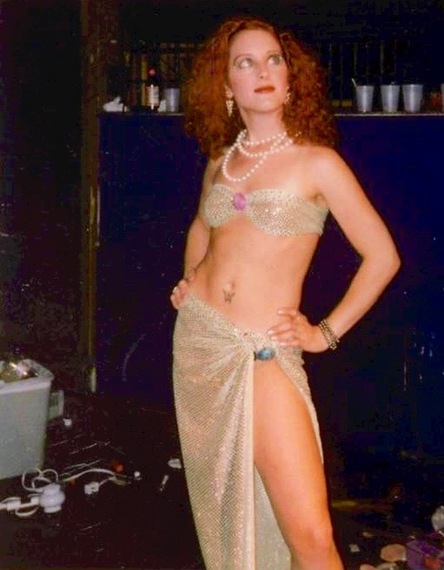
Nikki at age 19, 1995
At the time, I was seeking out ways to self-identify in a media climate that treated people like me as if we were simply sexual beings living a fetish lifestyle. During a 1995 Jerry Springer episode, I said, "I'm a woman with a penis," at which point fellow guest, Mimi Marks said, " I would never say that." I learned, at that point, how important the way I presented my self and my story was, and that it directly reflected how people perceived me.
Behavior, including what you say, is judged almost as harshly as how we look. Being transgender is not about what surgery you have or have not had. I have never had any cosmetic surgery, in fact the only surgery I have ever had was gender confirmation surgery at 33. And as a transgender person, I am fortunate to appear very naturally as the gender I most identify with. Although, I still have to shave my face everyday. And even though there are hair removal options, my light hair color will only be removed with hours and hours of painful and costly electrolysis. This is just one of the issues facing women like me, but facial hair is not uncommon among all women, either cis or trans. 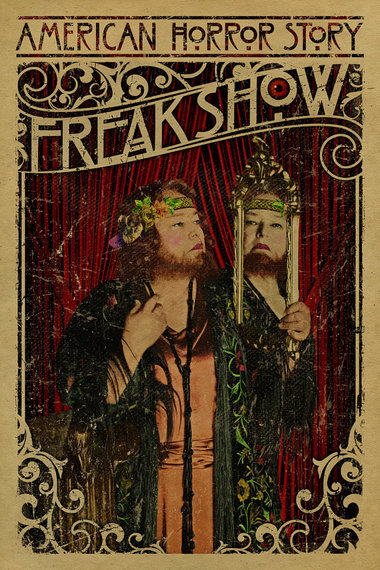
Kathy Bates as the Bearded Lady in AHS
Another issue that many transgender women have to navigate is how we dress. When I was young, and just beginning to assert my femininity, I tended to dress overtly risque.' In fact, when I think back, I wonder how frightened my parent's must have been as I left to head out to the clubs, a walking target as a woman, more so as a trans* woman. I am certain that I was subconsciously screaming for acceptance "I'm a girl, I'm a girl!" Sometimes, I would wear evening attire for a day time event, perhaps even a job interview. Again, I am not saying that women, must wear a certain style of clothes to be a woman, I am simply speaking my truth as a male to female transgender, transsexual, intersexed person. And during this period I was seeking validation, the way I dressed and acted were just some of the ways I sought it, and have found this to be common among women like me. 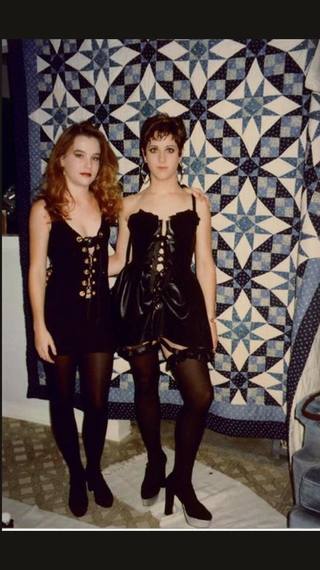
16 year old Nikki with best friend, Leah, heading out to the club.
Over the last couple decades, societally, the term "transgender" has become an umbrella term, joining all transsexual, intersex, transvestite, cross-dressers, non-binary people and others who either identify as either male and female, or neither male or female into one category of human. While in most cases, I have found myself relating to my "lumped together" counter-parts, there seems to be a movement amongst some "transgender" identified individuals that I don't agree with, the "bearded lady" movement, and it makes me increasingly frustrated at the appropriation of our community by individuals who seek to push the boundaries of societies gender roles while positioning themselves as victims of it. Sometimes, it reminds me of the kids in high school that would change their preferences based on what was "cool" at the moment. I guess, right now, trans is cool.
While we are in the midst of large scale social acceptance of transgender people as a whole, we are still fighting for important equal rights ordinance campaigns nationally, like Houston's Propostion 1, H.E.R.O. and the perception of a transgender woman being a cross-dressing man has long been our hardest battle. In fact, the "Man In A Dress" is the image opponents to the H.E.R.O., have made the focal point of all their anti-Prop 1 advertisements.
Meanwhile, Laverne Cox has done much for increasing our visibility, but her recent announcement as the starring role reprisal of ,Rocky Horror Picture Show's, Dr. Frankenfurter, a character known to be a transvestite, does nothing but remind people, they should assume transgender people are just men playing dress up. 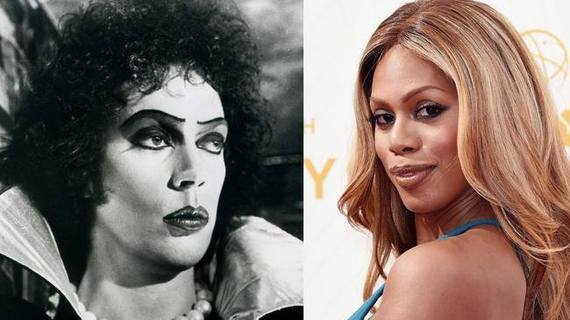
Tim Curry as Dr. Frankenfurter, and Laverne Cox as herself
In saying that, I don't think adult males dressing up like children's female Japanese cartoon characters in full make-up and beard on the weekend belong in the same restroom as me or my daughter. Don't appropriate our battle to satisfy your sexual fetishism and demand the same protections. For me, gender, is not something you flip and flop, but is extremely personal, which is why I agree with WPATH standards of care and recommend therapy and real life experience for all newly transitioning people.
Just because I am transgender, it doesn't mean that I am required to completely disregard society's gender role norms, including choosing to not shave and become the "bearded lady." In fact, I actually like stereotypical gender roles; my first dream was to be a mom and a housewife.
It's sad that in our individual assertion of our right to choose the gender we most identify with, some far left-wing, anti-binary activists insist that we must also then ignore all socially accepted gender identities and if we don't, we then are considered racist or privileged. I guess I could say, that by my following societies gender norms, it has afforded me acceptance. Which is one of the reasons why my organization, Transgender National Alliance, is the only organization that provides financial support for life changing name and gender marker changes as well as medical procedures, helping others to achieve their own personal goals. Sometimes, people choose to live a "non-binary," "androgynous" and even "cross-dresser" existence because they are afraid to transition or they think they can't "pass" as their chosen gender, and our organization exists to knock down those obstacles inspiring others to fearlessly walk in their truth.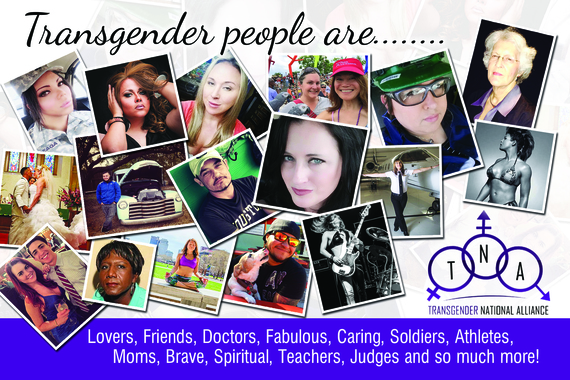
In the end, being transgender does not mean I dislike binary roles, and liking binary roles doesn't mean I dislike non-binary people. But the bottom line is intersexed people, crossdressers, drag kings and queens, transsexuals (non/pre/post), effeminate men, masculine women, questioning and gender queer individuals should view each other through the eyes of equality in that we are all a part of the same community and none of us are better than, more authentic than and/or more legitimate than any other type of trans person.

